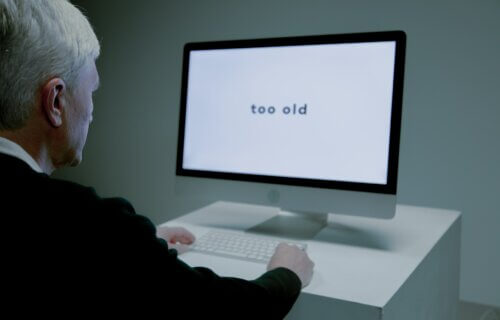ANN ARBOR, Mich. — The average lifespan of a person in the United States has risen in recent decades, but so have incidents of ageism against those individuals. One unfortunate consequence to growing older is dealing with people who treat you as incapable of doing anything. Now, researchers from the University of Michigan find you’re more likely to deal with ageism if you have more physical and mental health problems.
“These findings raise the question of whether aging-related health problems reflect the adverse influences of ageism and present the possibility that anti-ageism efforts could be a strategy for promoting older adult health and well-being,” says lead author Julie Ober Allen, PhD, MPH, an assistant professor at the University of Oklahoma, in a media release.
A poll of more than 2,000 people between 50 and 80 years-old found more older adults in poor physical or mental health, with chronic health conditions, or showing signs of depression faced “everyday ageism.”
The team used an Everyday Ageism scale that produces a score based on an individual’s answers to 10 questions on their own experiences and beliefs surrounding aging. Results show 93 percent of older adults reported experiencing at least one form of ageism on a regular basis. The most common act of discrimination — according to 80 percent of respondents — was people telling them that “having health problems is part of getting older.”
However, 83 percent rated their health as good or very good. The findings suggest that hearing your health will always decline because of age leads to “internalized” ageism that can make someone feel helpless or depressed about getting older.
Low-income and less educated seniors face more discrimination
Another 65 percent of respondents said they regularly faced jokes about older people or messages that older adults are unattractive or undesirable. In the survey, the team also found constant instances of interpersonal ageism. This form of ageism, experienced by 45 percent of survey takers, involves other people assuming older adults have trouble using technology or being able to complete tasks by themselves.
People who dealt with the most ageism had lower incomes, did not spend as many years in school, and lived in rural areas. Additionally, older adults that spent four or more hours a day interacting with media — such as watching TV, scrolling the web, or reading magazines — experienced higher rates of ageism than those with less media consumption.
“The fact that our poll respondents who said they’d felt the most forms of ageism were also more likely to say their physical or mental health was fair or poor, or to have a chronic condition such as diabetes or heart disease, is something that needs more examination,” explains Preeti Malani, MD, a professor at Michigan Medicine, poll director, and senior study author.
The study is published in JAMA Network Open.

